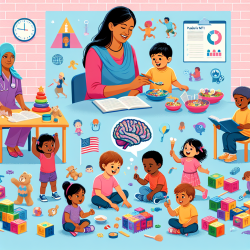Introduction
In the realm of pediatric mild traumatic brain injury (mTBI), understanding the role of social determinants of health (SDoH) is crucial for improving outcomes. A recent content analysis titled Social Determinants of Health and Health Equity in the Diagnosis and Management of Pediatric Mild Traumatic Brain Injury sheds light on the gaps in current research and clinical guidelines. This blog aims to help practitioners enhance their skills by integrating these findings into practice or encouraging further research.
The Research Findings
The study analyzed 37 research articles underlying the CDC's guidelines for pediatric mTBI. Surprisingly, none explicitly mentioned "social determinants of health," and only a small percentage addressed SDoH domains. The most frequently mentioned domains were:
- Education Access and Quality (29.7%)
- Social and Community Context (27.0%)
- Economic Stability (21.6%)
Health Care Access and Quality was underrepresented, and no studies examined Neighborhood and Built Environment. The research primarily focused on prognosis, with SDoH considered as predictors of outcomes rather than in diagnosis or treatment.
Implications for Practitioners
Practitioners should consider how SDoH impact clinical assessment and treatment plans. For instance, exercise-based rehabilitation is recommended for persistent symptoms, but access to resources like fitness facilities can be limited by economic factors. Additionally, health literacy and language barriers must be addressed to ensure effective communication and care.
Here are some actionable steps practitioners can take:
- Incorporate SDoH into patient assessments and treatment plans.
- Ensure educational materials are accessible and available in multiple languages.
- Facilitate referrals to specialty care and support families in navigating healthcare systems.
Encouraging Further Research
The study highlights the need for more research on SDoH in pediatric mTBI. Future studies should explore the relationship between SDoH and recovery time, as well as the feasibility of interventions targeting these determinants. Researchers are encouraged to use community-based participatory research designs to better understand health disparities.
Conclusion
Understanding and addressing SDoH is vital for improving outcomes in pediatric mTBI. Practitioners can enhance their skills by integrating these considerations into their practice, while researchers are urged to fill the knowledge gaps identified in the study. By doing so, we can work towards health equity and better outcomes for all children.
To read the original research paper, please follow this link: Social Determinants of Health and Health Equity in the Diagnosis and Management of Pediatric Mild Traumatic Brain Injury: A Content Analysis of Research Underlying Clinical Guidelines.










